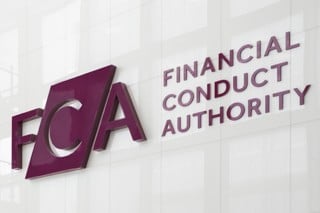Car retail sector PLCs Vertu Motors, Pendragon, Lookers and Motorpoint are expected to see “valuations improve” as stability returns to the UK economy.
Zeus Capital head of research Mike Allen told the latest edition of Cox Automotive’s Autofocus publication that assurance inflation and interest rates have peaked could bolster the under-valued section of the UK’s publicly-listed companies.
Allen’s comments come just weeks after a report published by Zeus stated that Lithia Motors’ £300 million Jardine Motor Group takeover talks had demonstrated the degree to which UK car retail businesses are “materially undervalued”.
 Writing in the latest AutoFocus, Allen said: “2022 was a year to forget for most investors as share price performances were typically poor due to the war in Ukraine, accelerating inflation, monetary policy tightening, continued COVID-19 locks in Asia, industrial action, the cost-of-living crisis unfolding – the list goes on.
Writing in the latest AutoFocus, Allen said: “2022 was a year to forget for most investors as share price performances were typically poor due to the war in Ukraine, accelerating inflation, monetary policy tightening, continued COVID-19 locks in Asia, industrial action, the cost-of-living crisis unfolding – the list goes on.
“However, from a UK automotive retail perspective, most PLC groups typically performed well operationally and look likely to hit our FY22 earnings projections, but this was not reflected in share price performance.”
Zeus Capital analysed the profit before-tax forecast of the four main UK dealer groups – Vertu Motors, Pendragon, Lookers, and Motorpoint – and found that their FY22 financial performance was 41.9% below its FY21 peak.
However, Vertu will benefit from its acquisition of Helston this year as Motorpoint targets organic expansion and Lookers targets growth with new franchise partners.
Allen said: “Overall, it will be tough for PLC groups to exceed their financial performance in FY23 vs FY22 significantly, but PLC valuations remain low by historical standards thanks to the current levels of economic uncertainty coupled with rising interest rates.
“However, we believe the markets are seeking assurance that inflation and interest rates have peaked, and once that is the case, we would expect markets to reopen and valuations to improve from here.”
Allen added: “The financial performance across the sector, in general, was healthy coming out of various COVID lockdowns from 2020, and we all knew that the used car price performances of 2021 were never going to last.
“As a result, we had been careful not to extrapolate the super normal profits generated into 2021 into 2022 and, on average, assumed PLC dealer group adjusted profit before tax forecasts would be 42% below 2021 peak levels on average.
“Nevertheless, high super normal profits resulted in strong cash generation, leaving most dealers with net cash positions going into 2022.”
Cambria Automobiles chief executive Mark Lavery recently predicted there would be no car retail PLCs in the UK by 2025.
 Lavery, who successfully re-privatised his business in 2021 and is now poised to start “chapter two” of its development, told AM: “By 2025 I don’t think we will see any because, put simply, the investment opportunity that’s there isn’t seen by the investment community.
Lavery, who successfully re-privatised his business in 2021 and is now poised to start “chapter two” of its development, told AM: “By 2025 I don’t think we will see any because, put simply, the investment opportunity that’s there isn’t seen by the investment community.
“Look at the value attributed to businesses like Vertu and Lookers. It is in no way reflective of their scale or of the two absolutely cracking years that the sector has just had.
“Maybe agency model retail has spooked investors.”
Quoted in Autofocus, Cox Automotive insight and strategy director Philip Nothard said 2023 could bring another “perfect storm of ongoing supply pressures with deteriorating demand” for the UK Car retail sector.
But he added that PLC dealer groups had faced significant challenges before and have “robust balance sheets and strong management teams that can quickly adapt their businesses in a crisis”.
He added: “2023 will not just be about risks and challenges in our view. We also see opportunity through change, and those most nimble dealers will spot opportunities throughout the supply chain in nearly new, used cars; finance and aftersales will typically triumph.
“We anticipate that most of the PLC Groups will be in this category and adapt, grow, consolidate, and continue to churn out a respectable financial performance. Perhaps one day, investors will recognise this, and they might get the credit they deserve.”




















Login to comment
Comments
No comments have been made yet.